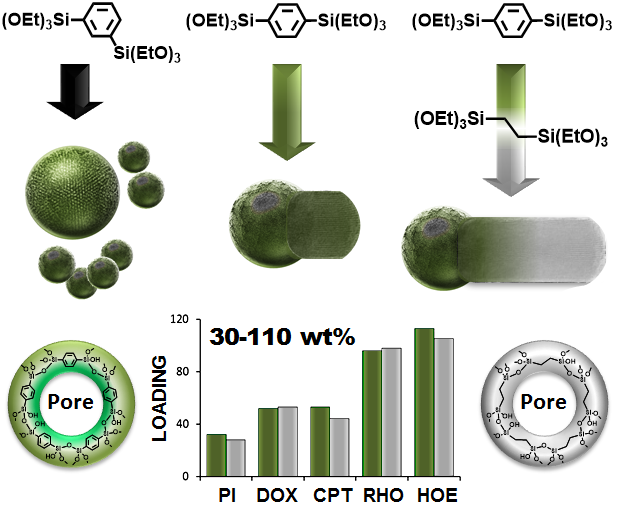

Despite the worldwide interest generated by periodic mesoporous organosilica (PMO) bulk materials, the design of PMO nanomaterials with controlled morphology remains largely unexplored and their properties unknown. In this work, we describe the first study of PMO nanoparticles (NPs) based on meta-phenylene bridges, and we conducted a comparative structure–property relationship investigation with para-phenylene-bridged PMO NPs. Our findings indicate that the change of the isomer drastically affects the structure, morphology, size, porosity and thermal stability of PMO materials. We observed a much higher porosity and thermal stability of the para-based PMO which was likely due to a higher molecular periodicity. Additionally, the para isomer could generate multipodal NPs at very low stirring speed and upon this discovery we designed a phenylene–ethylene bridged PMO with a controlled Janus morphology. Unprecedentedly high payloads could be obtained from 40 to 110 wt % regardless of the organic bridge of PMOs. Finally, we demonstrate for the first time the co-delivery of two cargos by PMO NPs. Importantly, the cargo stability in PMOs did not require the capping of the pores, unlike pure silica, and the delivery could be autonomously triggered in cancer cells by acidic pH with nearly 70 % cell killing.
